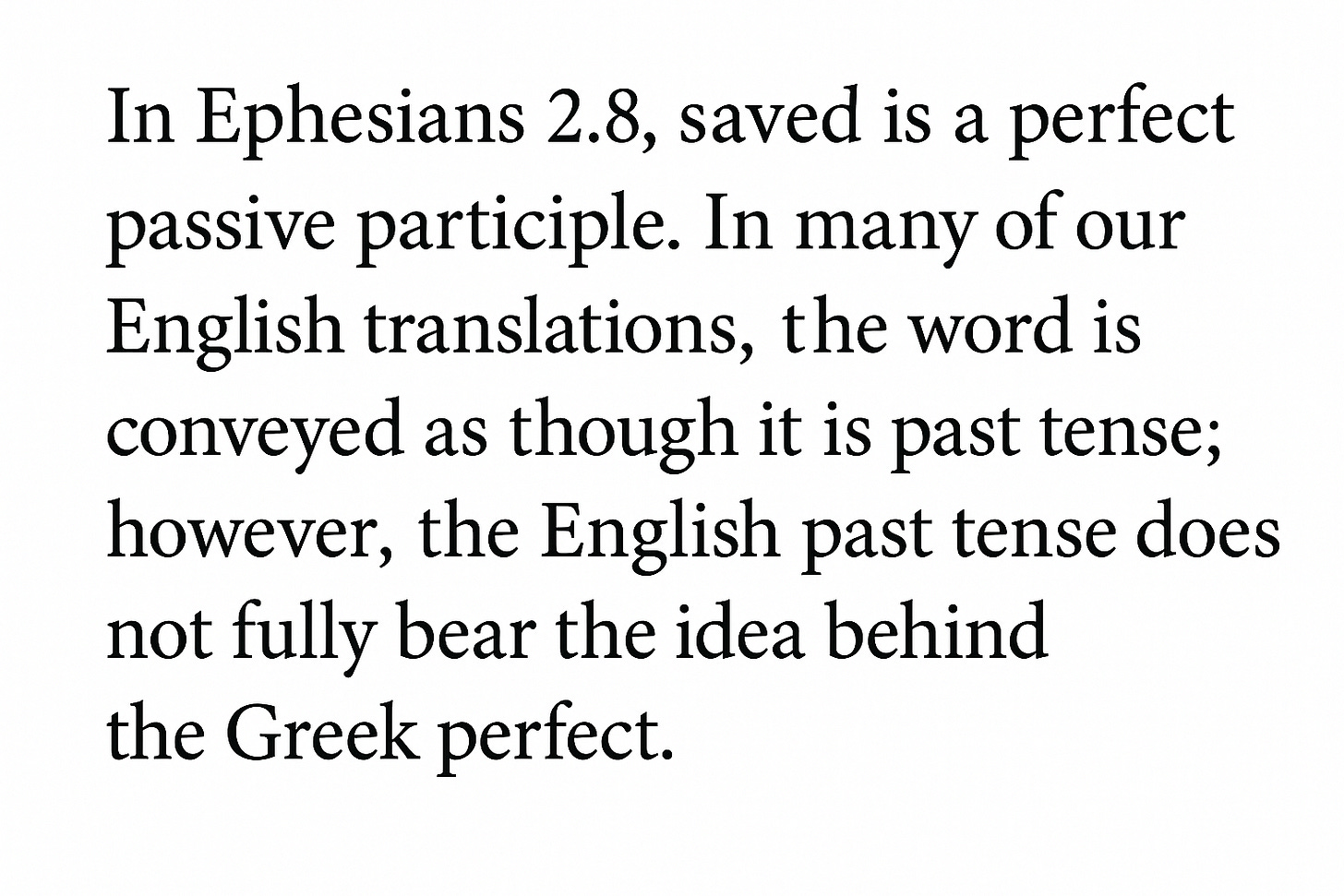Translating a Perfect in a Perfect Manner in Ephesians 2:8
In Ephesians 2:8, saved is a perfect passive participle. In many of our English translations, the word is conveyed as though it is past tense; however, the English past tense does not fully bear the idea behind the Greek perfect.
Since a perfect conveys an action that happened in the past, with abiding results into the present and on into the indefinite future, it is not focusing only on what happened in the past.
When we take the grammar into consideration, “For by grace you have been saved...” is, therefore, better expressed by, “For by grace you are in a state of being saved (σεσῳσμένοι)...”
As a passive participle, σεσῳσμένοι is describing an action that happened in the past, with abiding results in the present and on into the future. The instrument by which salvation comes about is grace—God’s attitude where He gives a benefit without consideration of merit—and the agency is faith—taking God at His word.
Therefore, God responded by grace to a person who expressed faith that Christ died on behalf of our sins and was raised on the third day according to the Scriptures, triggering an event in that person’s life that puts him into a state of being indefinitely saved.


